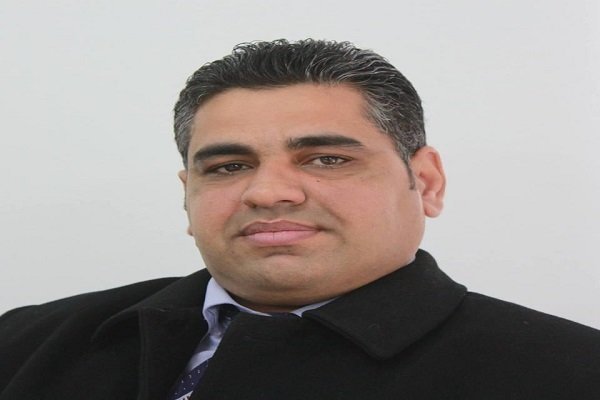Iran-Qatar strong ties, a threat to U.S., says professor al-Dajani

TEHRAN - A professor of political science at al-Ummah University in Gaza believes that Washington, whose strategic interest is at stake in the broken ties between Qatar and three members of the Arab states of the Persian Gulf, is making every effort to mend the Persian Gulf Cooperation Council (PGCC)’s diplomatic spat.
In early June 2017, three of the Persian Gulf countries, Saudi Arabia, United Arab Emirates, Bahrain, and Egypt alleged that Qatar is supporting terrorism and destabilizing the region, and thus they cut diplomatic ties with Qatar.
To that end, U.S. President Donald Trump has offered to bring Qatar and three members of the Persian Gulf Arab states to a meeting at Camp David, late in spring, to end the blockade in Qatar.
In the upcoming U.S.-Persian Gulf Arab state summit, Sheikh Tamim bin Hamad Al Thani, the Emir of Qatar, the Crown Prince of Saudi Arabia Mohammad bin Salman, and the Crown Prince of Abu Dhabi Mohammad bin Zayed will meet with President Trump.
Professor Hesam al-Dajani, who is also a political analyst of the Middle East, believes in the settlement of the Qatar-Persian Gulf crisis in Maryland, if that goes through, the U.S. the other parties of the Persian Gulf region and will have the winning hand.
He says Washington treats the Qatar crisis as a “national security issue”, because the blockade can lead Doha to seek alternative channels out of the geo-political crisis, and consequently, the U.S. will lose control over the region. Therefore the White House will spare no effort to bring an end to the Persian Gulf crisis or at least reduce its aftermath.
Earlier, U.S. Secretary of State Rex Tillerson had warned that the Qatar-Persian Gulf crisis will have global implications and said that it will have a negative military and economic impact on the U.S.
Professor al-Dajani says in the U.S.- PGCC Summit “respect” for each other’s sovereignty and interest should be the main focus of the PGCC states in the meeting, as the U.S. will perhaps highlight that too.
Two weeks after the imposed sanctions on Doha, Saudi Arabia and the other three Arab countries issued a list of 13 demands for Qatar that in case of compliance they would lift the trade and diplomatic embargo of Doha.
Doha’s foreign minister has already reassured his country’s readiness to engage in dialogue over the Qatar-Persian Gulf Arab state crisis, but on the principle of “equal footing” between the participating states.
Professor al-Dajani believes that during the summit, the White House, seriously seeking to resolve the Persian Gulf crisis, will push for results, as it will be to the best interest of Qatar and other four countries involved in isolating Qatar.
The professor opined that Qatar has paid high prices for its economic and diplomatic boycott, and the Saudi-led coalition, too, has not got the anticipated result. Therefore, perhaps Qatar will walk out of the meeting taking a softer stance on its policy on the Muslim Brotherhood movement and will reconcile with the Arab regional states.
interviewee note
Iran has been an important country for Qatar to circumvent the imposed sanctions. Regional actors like Tehran and Ankara, which stood by Doha in the Saudi-led confrontation with Qatar, and formed a new axis of Turkey-Iran-Qatar.
As the ties between these three regional countries continue to grow, the Saudi-led coalition against Yemen faces a devastating failure in the war in Yemen. The dispute between Saudi Arabia and the United Arab Emirates (UAE) over Yemen has got more heated and armed clashes between forces loyal to the Saudis and Yemen-backed southern separatists has deepened. These conflicts have seriously threatened Washington’s interest in the region.
Leave a Comment